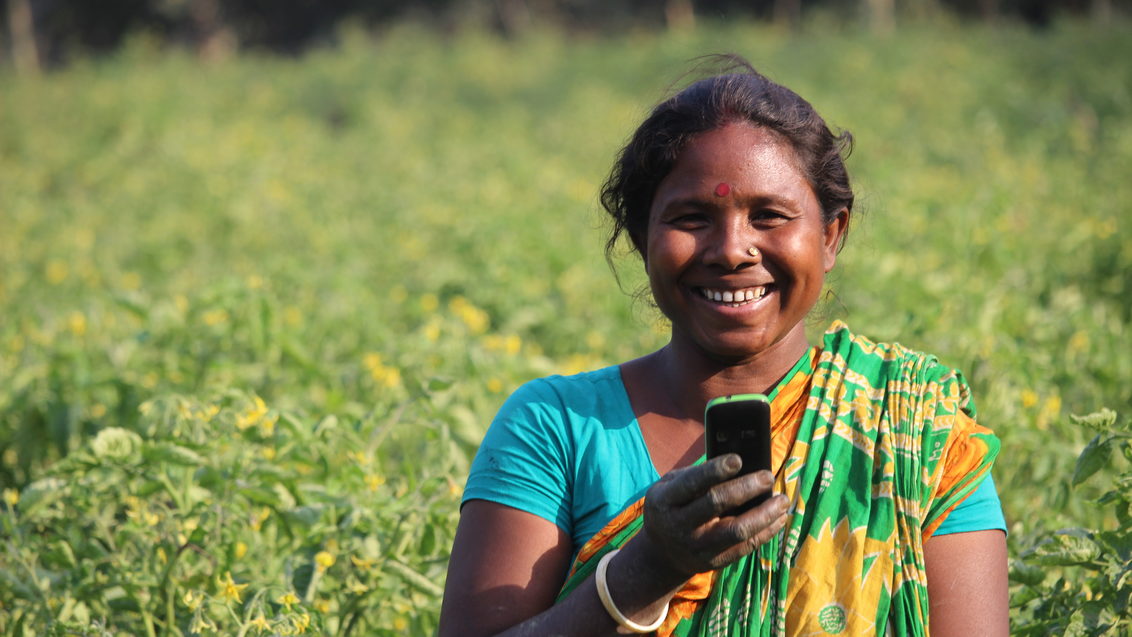Calling up the best data

In agricultural development, phone surveys are gaining in popularity. One reason is the pandemic*. Colleagues in India have recently switched to ‘remote’ surveys. The change wasn’t easy: “It took several attempts [and some] brainstorming and headbanging”, says Sharan Ghai**. “But as surveying became harder, the only option was rising to the occasion – and yes, going digital!” What have Sharan and the team learned along the way? Here’s her advice on phone surveys:
It’s an in-between methodology…
Phone surveying is a ‘happy medium’. It ensures a certain level of privacy, which helps people to be more forthcoming. But the interviews are still on-the-spot, which is good for honest spontaneity. The outreach is personal, so securing participation is often straightforward.
… which scores high on accuracy
Participants verbally dictate their responses, which greatly reduces the scope for error. Conventional interviews often rely on staff making notes manually on paper. We now enter information into pre-designed ‘e-forms’. That’s quicker and more accurate.
Keep it concise
People theoretically have more time to answer questions if they’re quarantined or working from home. But nobody really wants to spend more than ten minutes replying to a survey. We structure ours to remain short and spot-on. That helps us get the maximum information during limited attention spans.
Use the tools available
Can’t visit in person? No need to despair, nor to re-invent everything. Widespread mobile phone use lets one reach people even in remote areas. We collect data around the nation with tools readily available on the web. That makes surveys quick and cost-effective.
Ensure security and privacy
It’s essential to assure participants that their information will remain confidential. Pre-inform them about the calls. Make it clear there will be questions on their finances, household, pandemic-related challenges, and other personal topics. We inform village heads or mentors, who pass on the message. That helps establish trust, which makes the process easier.
Follow-up is key
Respondents often ask to take the survey later. With large numbers of people involved, those arrangements can get forgotten. However, we get through to most respondents when we call again. Doing so at their convenience usually assures thorough and patient responses. It also increases the sample size, which is always a plus!
Establish a rapport
Calling adds a personal touch of a kind, but it’s not the same as meeting in person. A hearty greeting or short introduction never hurts! Respondents are much happier when they realize that the interviewers are actually interested in them, rather than just automated machines collecting transactional data.
*Sometimes cost determines the choice. **Sharan Ghai works for https://aegf.in, co-founded by our Foundation and Tata Trusts.
Photo: Syngenta Foundation Bangladesh
